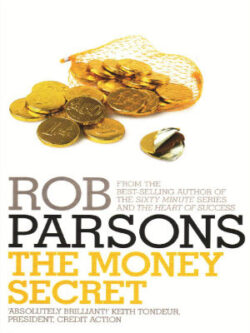Katharine Hill explains why money can sometimes cause problems in a marriage.
Since Angie and Mark married five years ago, both their salaries have been paid into their joint account which they use to pay the mortgage and the household bills.
They also had a credit card for emergencies, and Mark paid off the balance on this at the end of every month.
Then Angie discovered that for six months Mark had been using the credit card ‘just to make ends meet’ at the end of the month. The individual expenditure wasn’t huge, but the total amount borrowed had gradually increased until he could only afford to repay the minimum monthly payment. Mark hadn’t wanted to worry Angie and had hidden the statements from her. Now, with an interest rate of nearly 20% they had little hope of paying the amount due.
‘It’s not the money that’s the problem,’ says Angie. ‘It’s the fact he didn’t tell me about it and I found out by accident.’
Setting a foundation of trust
Healthy marriages that last a lifetime need to be built on a foundation of trust and honesty. And, like any other potential conflict between couples, a disagreement over finances can either be an issue that drives a wedge between us or a problem that we can work at together, drawing us closer and ultimately strengthening our relationship.
Disagreements in a relationship are normal – in fact they can even be a good thing! The key is to deal with them well. And although working through areas of conflict is rarely easy, to make a success of marriage we do need to learn to tackle these problems together and overcome them, particularly in the area of finance.
Most arguments about money come down to a couple having different spending priorities. Some people enjoy spending their money and others prefer to save and like to see their reserves grow. This has certainly been true in my experience. My husband Richard and I have very different definitions of what items we would class as ‘luxuries’ and ‘essentials’, and it always has the potential to cause an argument between us. We learnt that we needed to recognise and understand our different views about this, and to remember that we’ve been shaped and influenced by the different attitudes to money in our family backgrounds.
It’s also helped us to recognise that one attitude towards money is not necessarily better than the other. A spender can often be generous and spontaneous in their financial decisions, whereas a saver can be well-organised with finances and good at planning for the future. While it is often a cause of conflict in relationships, it can be an advantage to have both character traits represented when budgeting.
To avoid money becoming an issue in your relationship, the best approach is to talk about your attitudes with each other, and plan how you deal with finances accordingly. Whatever your personalities, it’s important to be honest and open with each other, and committed to working through the issue together.

If you’re in debt, this book will help you out, if you’re financially secure it will help you be wise with your money, and if you feel that nobody could understand the sheer loneliness of financial pressure, then ‘The Money Secret’ will become your friend.

About the author
Katharine Hill is UK Director Care for the Family. She is a well-known speaker, broadcaster and author of a number of books. She is married to Richard, and they have four grown-up children and seven grandchildren.
Share on social media
Help us support families today
At Care for the Family we support couples, parents and those who have been bereaved. If you would be able to make a one off donation to support our work, we would be very grateful. Thank you.
